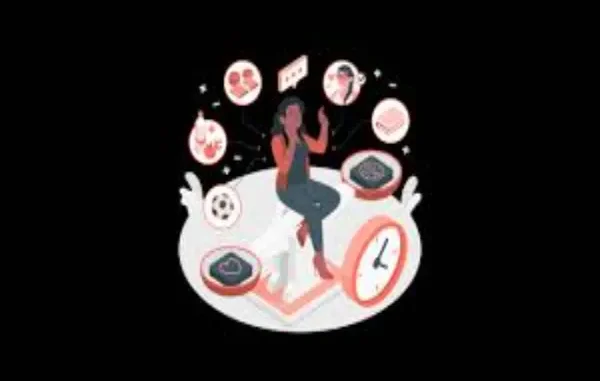
The internet is no longer just a place for news or entertainment. For most people, it’s a constant part of life – we work through it, stay connected, learn, and relax. But sometimes we forget how important it is to approach our digital behavior with a bit more awareness and… a human touch. In this article, we’ll talk simply and clearly about the habits that help us use the internet more wisely – without clichés and unnecessary philosophy.
How to Recognize Real Information Online
Being informed no longer just means reading the news. Online, you’ll find everything – from valuable analysis to outright lies. What helps is choosing our sources carefully. You don’t need to be a journalist – just check if an article is signed, where the information comes from, and whether it sounds overly “sensational.”
It’s also important not to trust blindly everything we see on social media. Algorithms show us what we already like – but that doesn’t mean it’s true. A simple trick: if something triggers a strong emotional reaction right away – stop, check, and think.
For practical, up-to-date advice on how to recognize fake websites, misleading ads, or suspicious offers, check out this official FTC guide on spotting and avoiding online scams. It breaks down warning signs in plain language, helping you stay safer as you browse, shop, or communicate online.
Where’s the Line Between Fun and Addiction?
Let’s be honest – we all enjoy relaxing with something fun. YouTube, movies, mobile games, social media – the internet is full of temptations. But sometimes, we catch ourselves not really enjoying it anymore – we’re just wasting time. It helps to ask ourselves: is this energizing me or draining me?
Some people turn to online games to unwind. One thing that’s becoming increasingly popular is online casino games. In Hungary, this kind of entertainment is strictly regulated, and there are platforms that provide access to vetted operators with local support and convenient conditions. If you’re curious about which gaming sites are reliable, casino-hungary.com offers useful reviews, bonuses, and safety info. Of course – the golden rule applies: play responsibly.
It’s also a good idea to reflect on how entertainment fits into your overall lifestyle. A hobby should bring joy, not stress or guilt. If logging off feels like a relief, it might be time to rethink how you’re spending that time.
Personal Data: Not Everything Should Be Shared
Nobody likes their privacy being invaded – but online, we often open the door ourselves. We sign up for a new website, download an app, join an online game – and give away our email, phone number, sometimes even bank card details, without thinking too much.
The advice here is simple: don’t be naive. Use different passwords for different platforms. If a site looks shady – skip it. Always read the privacy policy (even just the basics). Security starts with you, not with the system.
Think twice before sharing anything too personal, especially in public forums or social platforms. And make it a habit to regularly review the privacy settings of the apps and services you use.
Official cybersecurity guidance from NIST provides tips for protecting personal data online – widely used across sectors in the U.S.
Online Behavior: Everything You Say Stays
Being polite online is just as important as in real life. Many people forget this when they’re behind a screen. Anonymity is no excuse for rudeness, hate, or irresponsibility.
Even if it feels like no one will read your comment – someone will. And often, our digital “footprint” stays for a long time. A calm tone, respect for others’ opinions, and a bit more patience – that’s what makes the internet a better place.
Think about your future self. Would you be okay with a potential employer or a close friend seeing what you wrote? That question alone can guide us toward more thoughtful interaction online.
Too Much Screen Time? Time for a Reset
How many times have you told yourself “just five more minutes” – and half an hour passed? Screens are designed to keep our attention. And they’re very good at it. So it’s smart to set limits – not as punishment, but as a way to reclaim our time.
You can use a timer or just take short breaks. Step outside, talk to someone in person, move around a bit. We don’t need to run from technology – but it’s healthy to put it down now and then.
If you’re struggling to disconnect, try setting no-screen rules during meals or in the hour before bed. Creating small offline rituals can help you reconnect with your real environment.
And don’t forget: real rest often starts when the screen goes dark. Replacing a scroll session with a short walk or a few pages of a book can change the tone of your entire day.
Learning and Self-Education Online
The internet is full of opportunities to gain new skills or broaden your knowledge. But with so many courses and sources out there, it’s important to choose wisely. Look for content backed by experts or institutions, not just influencers.
Not everyone needs a degree to succeed in a new field – sometimes, consistent practice and self-learning can take you just as far. The key is to set clear goals and stay committed to learning over time.
Online education also allows you to go at your own pace. Whether you’re exploring a new career path or just following a personal interest, the flexibility and variety online can be a major advantage.
Finding Balance Between Online and Offline Life
Technology is amazing, but it shouldn’t replace real life. Spending hours online can disconnect us from our bodies, our relationships, and the world around us.
That’s why building routines that include offline activities – like exercise, nature walks, or in-person meetups – is essential. It’s not about rejecting the digital, but about remembering what else exists outside of it.
Even simple things, like sharing a meal without screens or having a weekly “offline day,” can help us recharge mentally and emotionally. Balance doesn’t happen by accident – we create it with intention.
Being a Responsible Digital Citizen
We all share the internet. Just like in a real community, how we behave impacts others. Respect, accountability, and empathy matter here too.
Standing up against hate speech, reporting harmful content, or simply supporting someone online who’s being targeted – these small actions shape the kind of internet we want to be part of.
Remember: every click, comment, or post is part of your digital legacy. Let’s use that power wisely.
Final Thoughts
Not everything online is bad. On the contrary – the web is full of useful, interesting, and inspiring things. The key is using it consciously. A bit of attention to our habits, a critical eye toward content, and more care for ourselves – that’s what makes the difference between “being online” and “living well online.”
The internet shouldn’t control you – it should serve you.






Leave a Reply